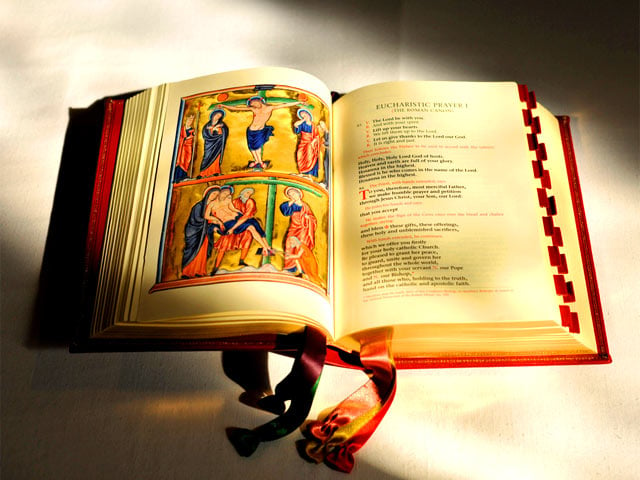- Home
- Our Community
- Our Faith
- Our Ministries
-
Parish Life
- Calendar of Events
- St. Aidan's Video Links
- Parish Blog
- News Archive
- Mass Etiquette and Information
- Ad Orientem News and Facts
- Catholic Links
- Prayers and Announcements
- Luis Dizon Reflections - Archive
- Bulletin
- Contact Us
- Search

Appointed to Eternal Life (4th Sunday of Easter)
Click here for the Sunday Readings
Acts 13-14 chronicles the first of Paul’s missionary journeys, where he travels around Cyprus and Asia Minor to spread the Gospel. In each city he enters, he always goes to the Jewish community first, as we see in our reading. This is in accordance with his policy of preaching the Gospel “to the Jew first” (Rom. 1:16). His message to them focuses on how God’s salvific history as found in the Hebrew Bible finds its culmination in the life, death and Resurrection of Jesus (Acts 13:26-41).
When he preaches this message in the synagogues, he often encounters intense hostility from the Jews, as his message of a crucified Messiah ran counter to their expectations of what the Messiah would be like. Paul would later write about how the majority of the Jews hardened their hearts against Christ, and why God would allow this to happen (Rom. 9-11).
After this, Paul quotes Isaiah 49:6, which speaks of God’s servant bringing salvation to the ends of the earth. After this, Paul went out and preached to the Gentiles of the city, and as verse 48 states, “as many as were appointed to eternal life believed.” This highlights how despite Jewish opposition, the word of God did not go forth empty but accomplished the task for which it went out, namely the conversion of souls (cf. Isa. 55:10-11). It also shows how God’s plan of salvation is now being extended to non-Jews as well.
This story is a great example of how evangelization works. When we proclaim the Gospel, we often encounter opposition from people. However, there will always be those some are receptive to the Gospel, and it is for their sake that we speak the word. Out job is not to convince others to believe, but to proclaim the message. As Paul wrote, I planted, Apollos watered, but God gave the growth” (1 Cor. 3:6).
J. Luis Dizon
